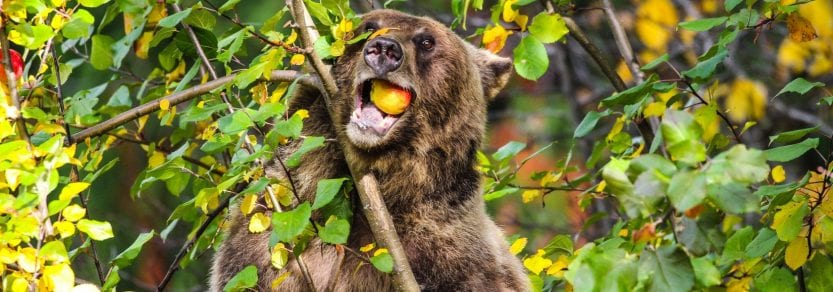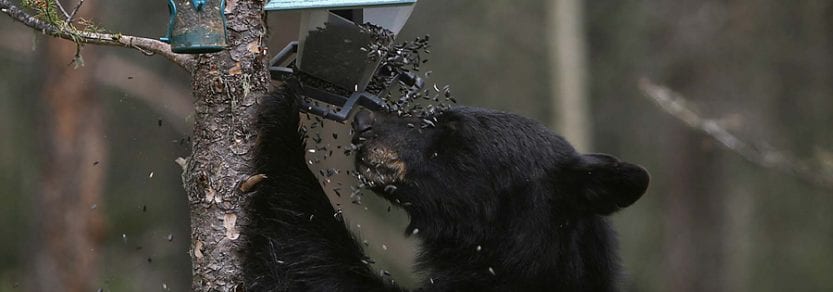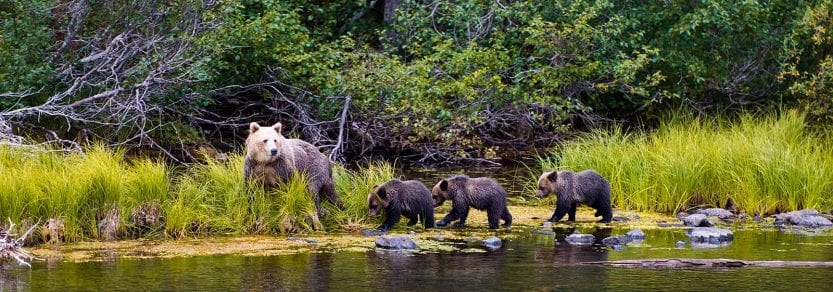Fall is here and, around the province, bears are fattening up in preparation for hibernation.
“Bears can almost double their weight in a matter of weeks,” says Meghann Cant, BC SPCA animal welfare educator. “They need to rapidly build up their fat reserves in order to survive the winter.”

Finding enough food, however, could prove challenging, given this summer’s severe drought conditions and record-breaking wildfires. Without the berries, grasses, sedges and fish they normally rely on, bears may be lured into urban areas by human foods.
“Fire has destroyed their habitat and burned up their natural food sources, so it makes sense for them to look elsewhere to bulk up,” says Cant.
Hungry, displaced bears could end up finding exactly what they need in the form of compost piles, garbage bins, fruit trees and bird feeders — but at a serious cost. Hundreds of ‘problem’ bears are destroyed by Conservation Officers every year, Cant says. “We need to manage our food attractants now more than ever.”

To reduce potential conflicts with our wild neighbours, she suggests following these tips:
- Keep garbage and recycling secured in the house, garage or shed until pick-up day;
- Clean garbage and recycling bins regularly;
- Pick up ripe and fallen fruit from trees and bushes daily;
- Harvest garden vegetables as they ripen;
- Clean barbecue grills after each use, and store barbecues in a secure area;
- Bring pet food dishes inside;
- Cover kitchen scraps in the compost with dry leaves or dried grass clippings;
- Avoid overloading the compost with fruit waste by freezing it and adding it gradually;
- Turn compost regularly, and keep compost bins covered;
- Help educate neighbours about bear safety by contacting the BC SPCA to order bear door hangers;
- Work with neighbours to create a bear-aware neighbourhood.
While some ‘problem’ bears may be translocated instead, this is often neither a humane nor an effective solution. Capturing and moving bears to a new location is hard on them, explains Cant, and they regularly return to where they came from — sometimes in a matter of days.
“Translocating bears is, at best, a short-term solution to human-bear conflicts, and is far from being a positive choice from an animal welfare standpoint,” says Cant. Instead, she suggests that our behaviour – not the bears’ – is the key. “Preventing bears from gaining access to human foods in the first place will save lives,” says Cant. “Learning to coexist with bears will help make our province safe for ourselves and for our wild neighbours.”
For more information and links to other organizations and government resources, visit spca.bc.ca/bears.

WildSense newsletter
Want to receive more stories like this, right in your inbox? Subscribe to WildSense, our bi-monthly wildlife newsletter.
The BC SPCA uses your personal information to update you on our work for animals as well as for advertising and analytics purposes. More information on uses and how to opt-out can be found in our Privacy Policy.
